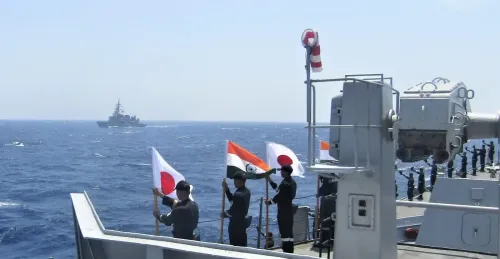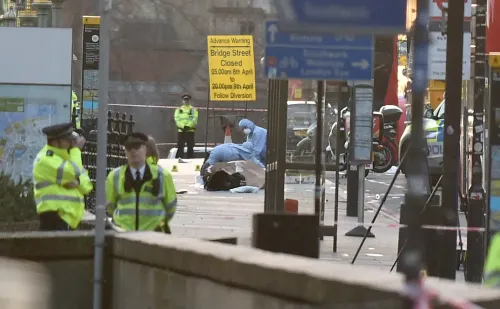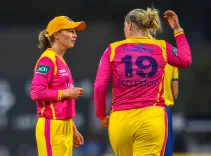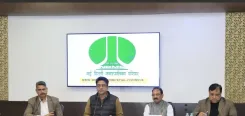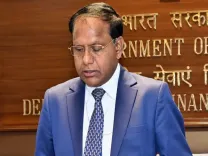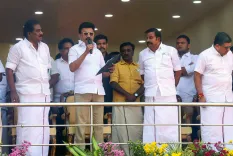PM Modi's Personal Involvement in Indian Fishermen Arrest Case: Senthil Thondaman
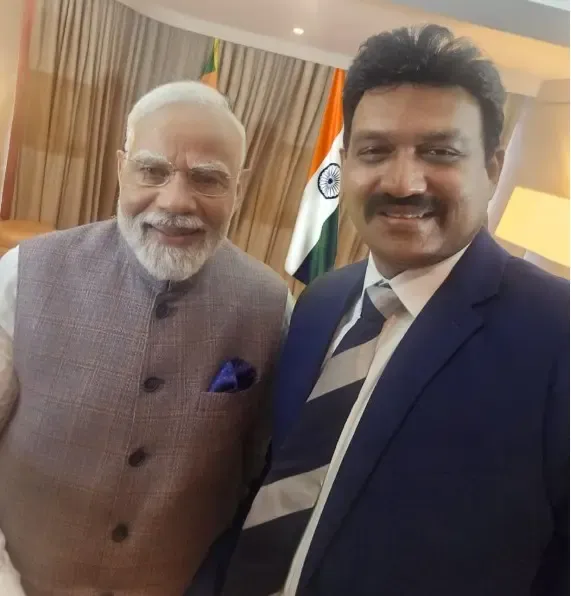
Synopsis
Key Takeaways
- PM Modi's Personal Intervention in fishermen's arrest.
- Support for Indian-Origin Tamils in Sri Lanka.
- Historical Ties between India and Sri Lanka.
- Community Development Projects announced.
- CWC's Role in advocating for rights since 1965.
Chennai, April 5 (NationPress) The President of the Ceylon Workers Congress and former Governor of Sri Lanka’s Eastern Province, Senthil Thondaman, stated on Saturday that Prime Minister Narendra Modi has personally intervened in the matter concerning the arrest of Indian fishermen by Sri Lankan authorities.
“PM Modi has personally intervened in the ongoing issue of Indian fishermen being arrested by Sri Lankan authorities. PM Modi directly spoke to the President of Sri Lanka regarding this matter, aiming for a resolution,” remarked Senthil Thondaman.
He further mentioned that PM Modi has also offered full support to the Indian-Origin Tamil (IOT) community residing in Sri Lanka.
Thondaman emphasized that PM Modi has been a consistent supporter of Sri Lanka, especially during the economic crisis faced a couple of years ago, asserting that PM Modi’s leadership played a crucial role during that challenging time, providing essential assistance under India’s ‘Neighbourhood First’ policy.
“PM Modi stood by Sri Lanka when the nation was in dire need. His support was not only financial but also moral,” Thondaman conveyed to IANS following his meeting with PM Modi in Colombo.
Moreover, he noted that PM Modi’s guidance and encouragement have made him a role model for emerging politicians in Sri Lanka.
The Sri Lankan Tamil leader shared a social media post from PM Modi on ‘X,’ where the Prime Minister wrote: “The meeting with Indian-Origin Tamils (IOT) was productive. This community has served as a living bridge between the two nations for over 200 years. India will support the construction of 10,000 houses, healthcare facilities, the sacred Seetha Eliya temple, and other community development projects for IOTs, in collaboration with the government of Sri Lanka.”
Thondaman stated that the timely support from the Indian government, particularly the personal involvement of PM Modi, significantly bolstered Sri Lanka’s resilience during the crisis and strengthened the ties between the two countries.
He also praised the Indian government for providing essential goods to the people of Sri Lanka, asserting that the local population holds great respect and admiration for both the Indian Prime Minister and the government of India.
Highlighting the legacy of the Ceylon Workers Congress (CWC), Thondaman mentioned that it is the largest trade union in Sri Lanka and has played a vital role in advocating for the rights of Indian-Origin Tamils since the colonial era.
“Since 1965, the CWC has been working tirelessly for the citizenship rights of Indian-Origin people, and it is due to our persistent efforts that these rights were ultimately granted,” he articulated.
The CWC has been actively engaged in enhancing the lives of approximately 600,000 tea estate and factory workers, most of whom reside in poor housing conditions known as “line rooms.”
Thondaman pointed out that the CWC launched a housing program in 1987 to replace these inadequate accommodations.
“Since we began this initiative, 39,000 homes have been built for tea workers throughout Sri Lanka,” he stated, adding that the CWC remains dedicated to improving the living standards of the tea estate community.


